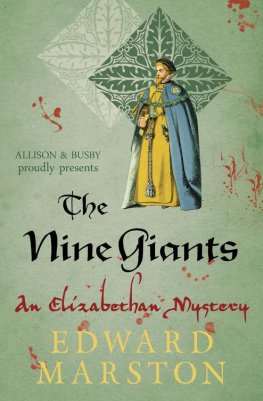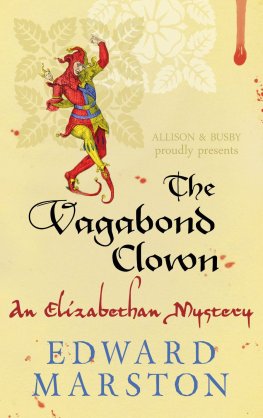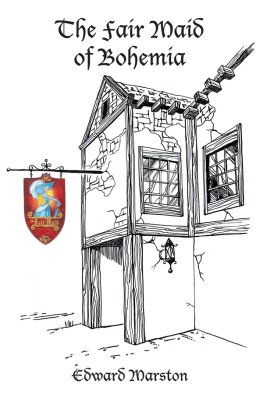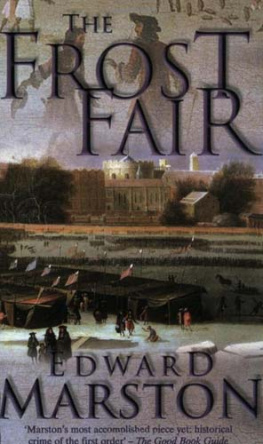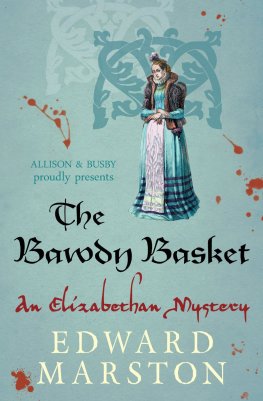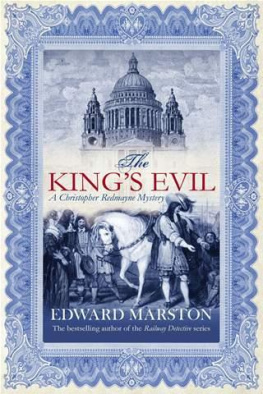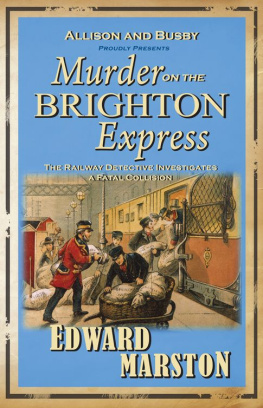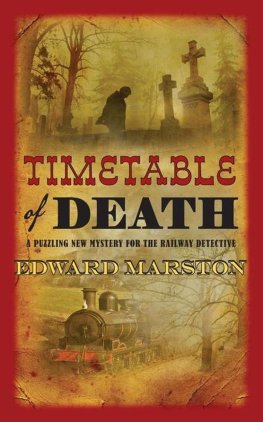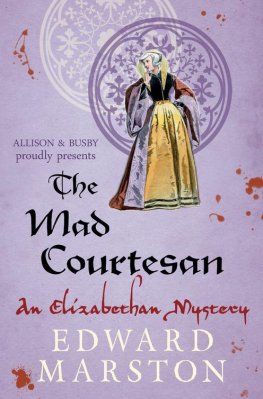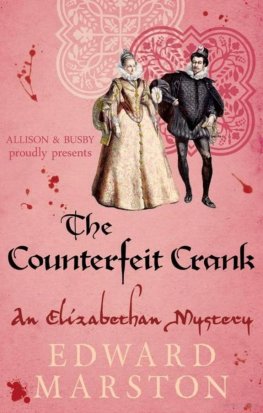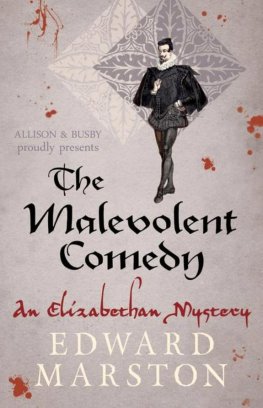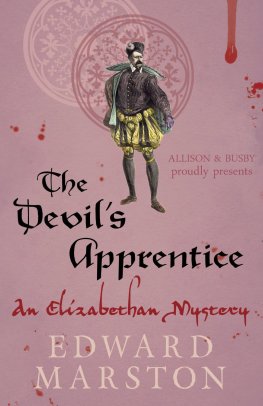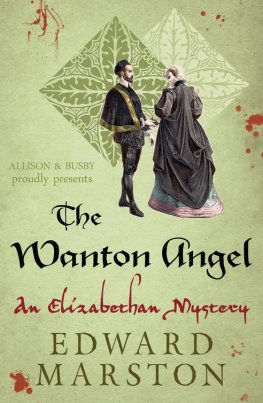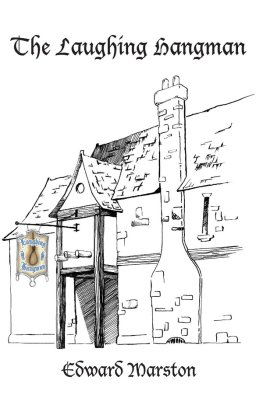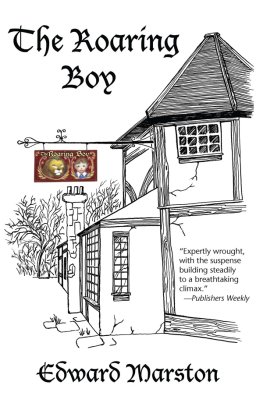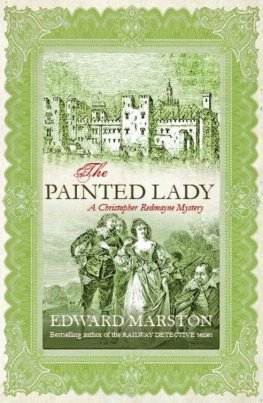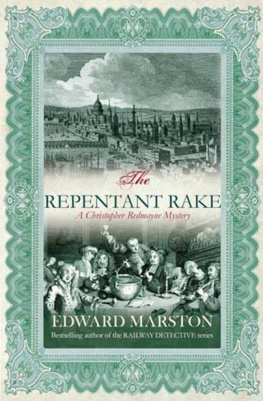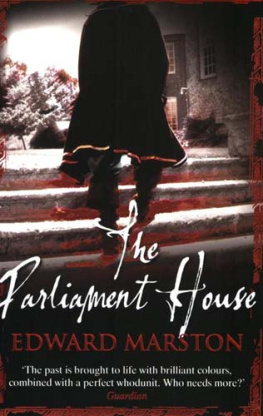Edward Marston - The Nine Giants
Here you can read online Edward Marston - The Nine Giants full text of the book (entire story) in english for free. Download pdf and epub, get meaning, cover and reviews about this ebook. genre: Detective and thriller. Description of the work, (preface) as well as reviews are available. Best literature library LitArk.com created for fans of good reading and offers a wide selection of genres:
Romance novel
Science fiction
Adventure
Detective
Science
History
Home and family
Prose
Art
Politics
Computer
Non-fiction
Religion
Business
Children
Humor
Choose a favorite category and find really read worthwhile books. Enjoy immersion in the world of imagination, feel the emotions of the characters or learn something new for yourself, make an fascinating discovery.
- Book:The Nine Giants
- Author:
- Genre:
- Rating:4 / 5
- Favourites:Add to favourites
- Your mark:
- 80
- 1
- 2
- 3
- 4
- 5
The Nine Giants: summary, description and annotation
We offer to read an annotation, description, summary or preface (depends on what the author of the book "The Nine Giants" wrote himself). If you haven't found the necessary information about the book — write in the comments, we will try to find it.
The Nine Giants — read online for free the complete book (whole text) full work
Below is the text of the book, divided by pages. System saving the place of the last page read, allows you to conveniently read the book "The Nine Giants" online for free, without having to search again every time where you left off. Put a bookmark, and you can go to the page where you finished reading at any time.
Font size:
Interval:
Bookmark:
Edward Marston
The Nine Giants
The famous Mayor by princely governance
With sword of justice thee ruleth prudently
No lord of Paris, Venice or Florence
In dignity and honour goeth to him nigh.
He is exemplar, lode-star and guy
Principal patron and rose original
Above all mayors as master most worthy
London thou art the flower of cities all.
WILLIAM DUNBARChapter One
Lawrence Firethorn gazed down in horror at the corpse of his young wife and let out a sigh of utter despair that sent tremors through all who heard it. Swaying over the hapless figure of the child-bride who had been plucked from him on his wedding night, he howled like an animal then held up his hands to heaven in supplication. When no comfort came from above, he was seized with an urge to wreak revenge for the savage murder and he pulled out his dagger to slash wildly at the air. The hopelessness of the gesture made him stand quite still and weep fresh tears of remorse. Then, on impulse, with a suddenness that took everyone by surprise, he turned the point of the dagger on himself and used brute power to plunge it deep into his own breast. Firethorn shuddered and fell to one knee. Though fading with each second, he managed to deliver a speech of sixteen lines with poignant clarity. He was down on both knees when he breathed his last.
Bereft am I of heart and hope, dear bride,
In your foul death, happiness itself has died.
Adieu, cruel world! Farewell, abhorred life!
I quit this void to join my loving wife.
Firethorn hit the ground with a thud that echoed through the taut silence. His outstretched fingertips made a last contact with the pale and forlorn hand of his bride. Anguished servants entered and the two bodies were lifted onto biers with reverential care before being carried out to solemn music. The noble Count Orlando and his adored young Countess would share a marriage bed in the family vault. Harrowed by the tragedy and caught up in its full implications, the onlookers did not dare to move or speak. Mute distress enfolded them.
It was broken in an instant by the reappearance of Lawrence Firethorn, leading out his company to take their bow before the full audience that was packed into the yard at the Queens Head in Gracechurch Street. He was no stricken aristocrat now, no Italian nobleman who had just committed suicide in a fit of unbearable grief. Firethorn was the finest actor in London, pulsing with vitality and bristling with curiosity, coming out to take his place at the centre of the stage and reap his due reward while at the same time scanning the upper gallery for a particular face. Count Orlando was only one in a long line of tragic heroes played by the acknowledged star of Westfields Men and it was a role in which he never ceased to work his will upon the raw emotions of the audience. They clapped and cheered and stamped their feet to show their approval of the play. Death and Darkness had weaved its magic web once more. Firethorn was being feted.
Applause was the lifeblood of an actor and each member of the cast felt it coursing through his veins. Firethorn might think that all the adulation was being directed solely at him and he was replying with a bow of almost imperious humility but his fellows could dream their dreams as well. The small, squat figure of Barnaby Gill, standing beside him, believed that the ovation was in recognition of his performance as Quaglino, the ancient retainer, the one comic character in a tragic tale, the single filter of light in the prevailing blackness of the play. Edmund Hoode, tall, spare and with a youthful innocence that belied his age, pretended that the applause was in gratitude both for his affecting performance as the doomed lover of the Countess and for his skill as a playwright. Death and Darkness was an early piece from his pen but it had stood the test of time and the close scrutiny of many an audience.
And so it was with the rest of the company, right down to its meanest member, George Dart, the tiny assistant stagekeeper, pressed into service as a soldier, proudly wearing the uniform of Count Orlandos guard and quietly congratulating himself on having got his one deathless line My lord, the Duke of Milan waits upon you right for the first time in weeks. Though put inconspicuously at the outer limit of the semicircle of actors, he bowed as deep as any of them, feeding hungrily on the sustained clapping while he could, knowing that he would be back to a more meagre diet of chores, complaints, gibes, outright abuse and occasional blows once he left the stage and returned to his accustomed role as the lowliest of the low. Theatre was indeed sweet fancy.
Nicholas Bracewell watched it all from his position behind the curtains. He was a big, well-groomed, handsome man with fair hair and a full beard. As book holder with the company, he stage-managed every performance with an attention to detail that lifted Westfields Men above so many of their rivals. No matter how generous it might be, applause never penetrated to his domain behind the scenes and this state of affairs suited Nicholas. He had a commanding presence that was offset by a gift for self-effacement and he courted the shadows more than the sun.
While Lawrence Firethorn and the others lapped up the tumultuous admiration, the book holder was still calmly doing his job, noting from his vantage point that Barnaby Gill had torn his hose, that Edmund Hoode had dropped a stitch in the rear of his doublet and that George Dart had somehow lost a buckle off his shoe. Nicholas had also observed in the course of a hectic two hours that entrances had been missed, lines had gone astray and the musicians had not been at their most harmonious. He would have stern words for the offenders afterwards and would even be courageous enough to tell the volatile Firethorn that, during one of his major speeches, the leading man had mistakenly inserted four lines from another play. Nicholas was a relentless perfectionist.
He had also come to know his employer very well. Even though his view of Firethorn was confined to a bending back and a pair of thrusting buttocks, he could see what was animating Count Orlando. Somewhere in the gallery was a new female face with a roguish charm that had ensnared the actor. Nicholas had spotted the signs earlier when Firethorn was in the tiring-house, working himself up to full pitch, smiling benignly for once on all around him, evincing a confidence that was fringed with nervousness and hogging the mirror even more than usual. The book holder groaned inwardly. It was bad news for the whole company when its actor-manager blundered into yet another romantic entanglement, and it was an extra burden on Nicholas Bracewell because he was invariably used as a reluctant go-between. There was danger in the air.
Lawrence Firethorn confirmed it within a matter of seconds. After taking a last, loving, lingering bow, he blew a kiss to the upper gallery then led his troupe from the stage. As they poured into the tiring-house, they could still hear the tide of approval as it slowly ebbed away. The actors fell into happy chatter and the musicians began to play in their elevated position to cover the noisy departure of their patrons. With his familiar eagerness, Firethorn swooped down on his book holder.
Nick, dear heart! I have important work for you.
There are chores enough to keep me busy, sir.
This is a special commission, said Firethorn. It comes direct from Cupid.
Can it not wait, master? said Nicholas, trying to evade a duty that was about to be thrust upon him. I am needed here, as you may well judge.
Firethorn grabbed him by the arm, pushed him towards the curtain then drew it slightly back to give them a view of the yard. His voice was an urgent hiss.
Font size:
Interval:
Bookmark:
Similar books «The Nine Giants»
Look at similar books to The Nine Giants. We have selected literature similar in name and meaning in the hope of providing readers with more options to find new, interesting, not yet read works.
Discussion, reviews of the book The Nine Giants and just readers' own opinions. Leave your comments, write what you think about the work, its meaning or the main characters. Specify what exactly you liked and what you didn't like, and why you think so.

